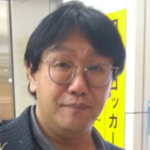Discovering Non-Verbal Hypnosis: A Beginner’s Transformative Experience
Yesterday in New York, Hypnosis creator Tamura conducted a private session focusing on addressing issues like menopausal symptoms using hypnosis techniques. Shortly before that, a beginner-friendly non-verbal hypnosis workshop was held, leaving participants with valuable insights and fresh discoveries. This article dives into the highlights of the workshop and shares one participant’s honest feedback, illustrating the transformative potential of non-verbal hypnosis.

A Cautious Start: From Skepticism to Discovery
For many, the idea of attending a hypnosis workshop can evoke a mix of curiosity and skepticism. One participant candidly shared their initial apprehensions about joining the session:

At first, I thought, ‘Be careful not to get tricked.’ To be honest, that was my mindset when I decided to participate. (Sorry, haha!)
This reaction is understandable, especially when the workshop is offered free of charge. However, as the session progressed, their attitude shifted dramatically.

But before we got started, the instructor provided clear explanations of the foundational theory and even answered deeply personal questions. Thanks to this, I was able to enjoy the session thoroughly.
This highlights the importance of creating a welcoming and transparent learning environment, something Hypnosis creator Tamura excels at. By addressing individual concerns and providing a strong theoretical foundation, participants feel more at ease and ready to engage.
The Power of Experiencing Non-Verbal Hypnosis
Non-verbal hypnosis relies on communication methods that transcend language, directly engaging the subconscious. The participant described their experience of this groundbreaking technique:

I was able to experience firsthand what it feels like to communicate with the unconscious mind. It was a truly eye-opening discovery.
This revelation showcases the unique appeal of non-verbal hypnosis. Unlike traditional approaches that depend on verbal commands, non-verbal methods use subtler cues to influence the mind, making them versatile and effective across diverse contexts.
A Foundation of Theory and Practice
The workshop balanced theoretical knowledge with practical exercises, ensuring participants gained a comprehensive understanding of non-verbal hypnosis. The participant emphasized the significance of starting with the basics:

Before diving into practical exercises, we covered foundational theories. This approach made the session much more enjoyable and meaningful.
This structured methodology underscores the importance of building a solid foundation before attempting advanced techniques. The inclusion of theory helps participants understand the mechanisms behind hypnosis, enabling them to practice with greater confidence and purpose.
Challenges and Aspirations
While the workshop left a positive impression, the participant expressed regret about not being able to spend more time engaging with the instructor and fellow attendees:

I wish I could have stayed longer to chat, but I had another commitment after the session. I hope to join similar events again soon.
This sentiment reflects the workshop’s ability to inspire ongoing interest and a desire to continue learning. Additionally, the participant shared their aspiration to develop their own hypnosis skills:

I want to become skilled at hypnosis like Tamura. Thank you so much, and I look forward to future sessions.
The Unique Approach of Hypnosis creator Tamura
What sets Tamura’s workshops apart is the focus on addressing misconceptions and providing critical insights into commonly accepted hypnosis practices. Tamura’s approach involves questioning norms and encouraging participants to think critically:

The hypnosis techniques I teach differ from conventional methods. I aim to highlight issues in widely accepted knowledge and encourage participants to adopt a broader perspective.
This commitment to critical thinking helps participants develop a more nuanced understanding of hypnosis. By learning to question established norms, they gain the tools to innovate and adapt their techniques effectively.
Lessons from the Workshop
The workshop offered several key takeaways for participants looking to explore or improve their hypnosis skills:

- Start with Theory
Understanding the “why” behind hypnosis is crucial. A strong theoretical foundation enhances the ability to apply techniques effectively. - Experience is Key
Practical exercises allow participants to connect theory with real-world application, making the learning process more impactful. - Keep Learning
Hypnosis is a dynamic field that rewards curiosity and continuous exploration.
Building Confidence Through Discovery
One of the workshop’s most significant outcomes was the participant’s newfound confidence and enthusiasm for hypnosis. Experiencing the power of non-verbal hypnosis firsthand opened their eyes to its possibilities, fueling a desire to learn more and achieve similar mastery.
Conclusion: The Gateway to Non-Verbal Hypnosis
Non-verbal hypnosis offers a fresh perspective on how the mind works and how it can be influenced. The workshop provided a welcoming space for beginners to explore this fascinating field while laying the groundwork for further growth.
For those curious about hypnosis, attending a session led by Hypnosis creator Tamura is an excellent starting point. Combining theory, practice, and a critical approach to conventional wisdom, these workshops empower participants to unlock their potential and embrace the transformative power of hypnosis.
HypnoticCafe
Hypnosis creator Tamura




Comments